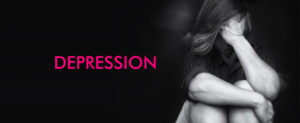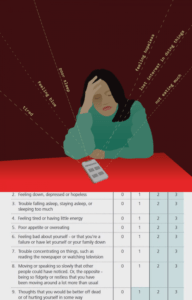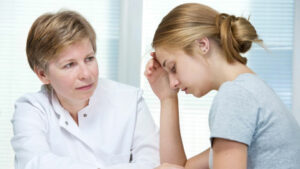Contents
Depression

Are you feeling down or sad? Depression is common for many people. Depression can be mild to severe, but it’s important to know if your depression needs treatment. It is a serious mental illness that can affect your life, relationships, and work. Depression Symptoms can be sadness, not able to concentrate on work or other activities, feeling guilty or worthless, changes in appetite and/or sleep patterns. Depression causes are genetic factors combined with life experiences such as trauma or loss of a loved one. To diagnose depression there are Depression Tests. These are based on the patient’s symptoms, medical history, and physical exam. A depression test is one way that doctors can rule out other conditions with similar symptoms before diagnosing the major depressive disorder or clinical depression.
What is Depression Test?
Depression tests are standard assessments that can help diagnose depressive disorders. Depression tests provide a way for doctors and mental health professionals to determine if patients have symptoms required for the diagnosis of major depression (MDD).
Not every test is a depression test. Doctors can perform tests to see if depression is related to any other ailment. For example, they can perform tests to rule out other conditions with similar symptoms. If a physical cause is ruled out or treated and the patient’s depression does not improve then it may be time for a depressive disorder diagnosis.
Types of Depression Test

The first step that a doctor performs is a Physical Examination. The doctor performs this examination to know if there are any other medical problems that can be causes of depression. A physical exam is one way doctors can rule out other conditions with similar symptoms before diagnosing major depressive disorder (MDD) or clinical depression.
After this, Doctor performs certain tests to Diagnose Depression.
Blood Test
This blood test is to rule out if there are any other diseases that can cause depression. It is also to diagnose if there are any thyroid problems in the patient. It can check anemia or any other diseases. These tests can examine calcium or vitamin levels.
Other lab tests; include MRI, ECG or EEG to see if there are any heart or brain problems. Some other tests are kidney or liver tests, thyroid function tests, hormone levels.
Screening Test

After doing all those blood tests, the doctor will now ask some questions that can help him or her to screen depression. These are some of the screening tests:
- The Patient Health Questionnaire- 9 (PHQ9) can help doctors identify the severity of depressive symptoms. It is a quick, simple questionnaire that you can take in 15 minutes. It will give an idea about depression.
- The Hamilton Rating Scale for Depression (HAM-D) is not technically a test, but it can help your doctor determine if you are experiencing severe depression. It consists of 17 questions that measure the severity and frequency of depressive symptoms such as mood swings, insomnia or hypersomnia, agitation or lethargy, feelings of guilt or worthlessness, and thoughts of suicide.
- Zung Self-Rating Depression Scale is a commonly used test to rate depression severity. William W.K. Zung MD designed this assessment tool in 1965 for the evaluation of depressive disorder among adults and adolescents over 12 years old.
- The Beck Depression Inventory (BDI) tests your mood on how you feel during the day including sadness, pessimism, guilt feelings or thoughts about suicide; your sleep patterns; apathy toward work, hobbies, etc.; loss of appetite; fatigue or energy levels; concentration problems and self-loathing feelings like feeling useless or inadequate.
Some Other Tests
- The Patient Health Questionnaire-15 (PHQ-15): This test has 15 questions covering seven areas: sadness, pessimism, low self-worth feelings including thoughts about suicide prevention planning and death wishes for self, etc. poor appetite or overeating changes in sleep patterns trouble concentrating restlessness feeling slowed down.
- Geriatric Depression Scale (GDS): This test has 15 questions covering six areas: sadness, pessimism; loss of interest in activities that the person used to enjoy; change in appetite and weight; insomnia or sleeping too much; difficulties in daily activities such as bathing, dressing, etc.
- Center for Epidemiologic Studies-Depression Scale (CES-D): This test is a self-report measure of depressive symptoms in the population. It consists of twenty items that are scored on a four-point scale ranging from 0 “Rarely or none of the time” to three “Most or all of the time” CES D was designed for community samples and not specifically for clinical populations but it can be used as a screening tool for depression.
Diagnosis of Depression

After the depression is diagnosed, the first step is to treat the underlying disorder, if one has been found. For example, some people who are depressed have thyroid problems or vitamin deficiencies that need to be corrected before they will respond well to treatment for depression.
Depression is curable, and there are different treatment methods to cure it. The treatment method depends on the cause and symptoms of depression. The most common method is Medications with or without psychotherapy. Medication with psychotherapy is the most common and effective method to treat depression. There are also some alternative therapies such as Yoga, Meditation, etc., which can be used in conjunction with medications for better results.
If you are having any symptoms of depression, you should start caring for it before it’s too late. If you are having any problem in sleeping, concentrating at work, etc, Consult a doctor first. Do not eat anything without consultation from the specialist as it can negatively affect your health.
A Word From Mantra Care
Your mental health — your psychological, emotional, and social well-being — has an impact on every aspect of your life. Positive mental health essentially allows you to effectively deal with life’s everyday challenges.
For more information, please contact MantraCare. Depression is a mental illness characterized by persistent feelings of sadness, hopelessness, and loss of interest in daily activities. If you have any queries regarding Online Depression Counseling experienced therapists at MantraCare can help: Book a trial Depression Therapy session


